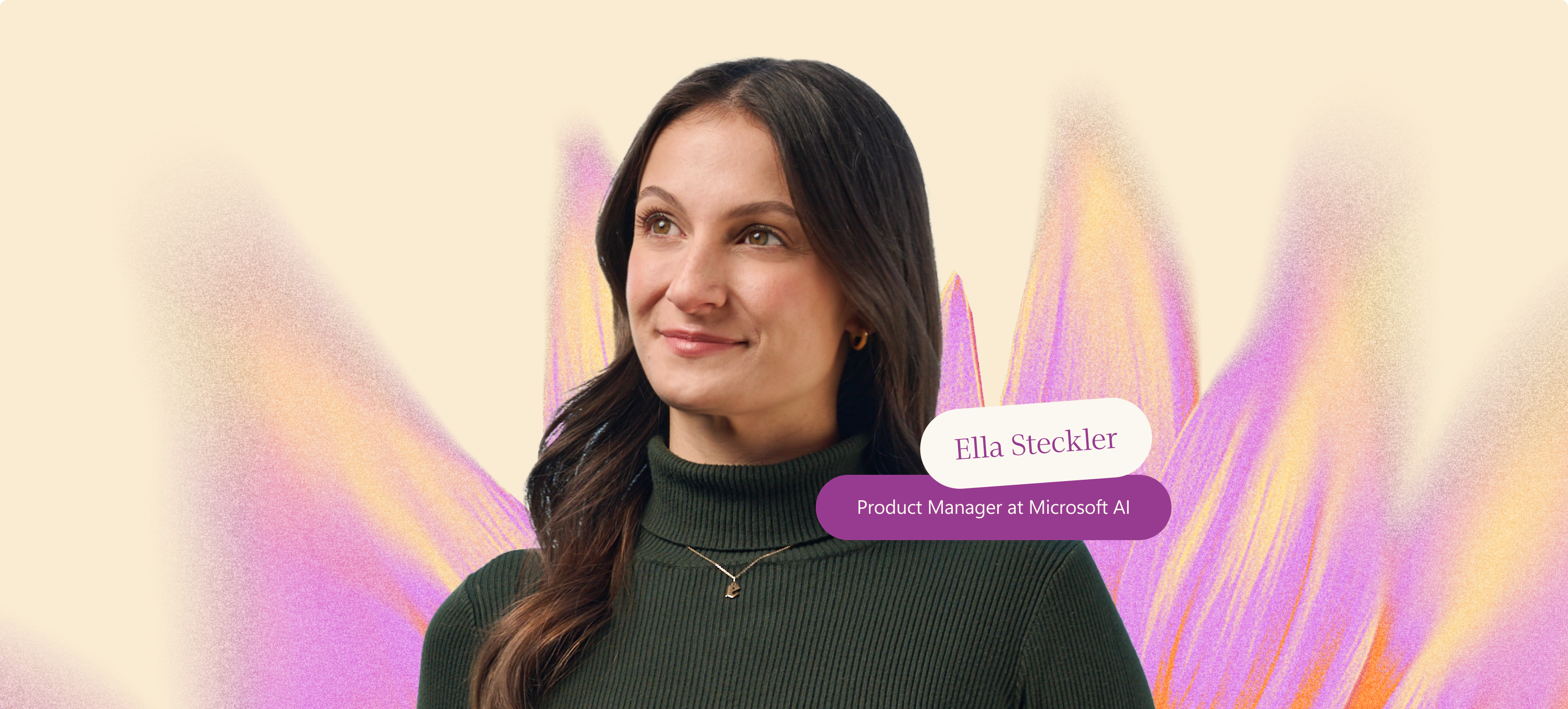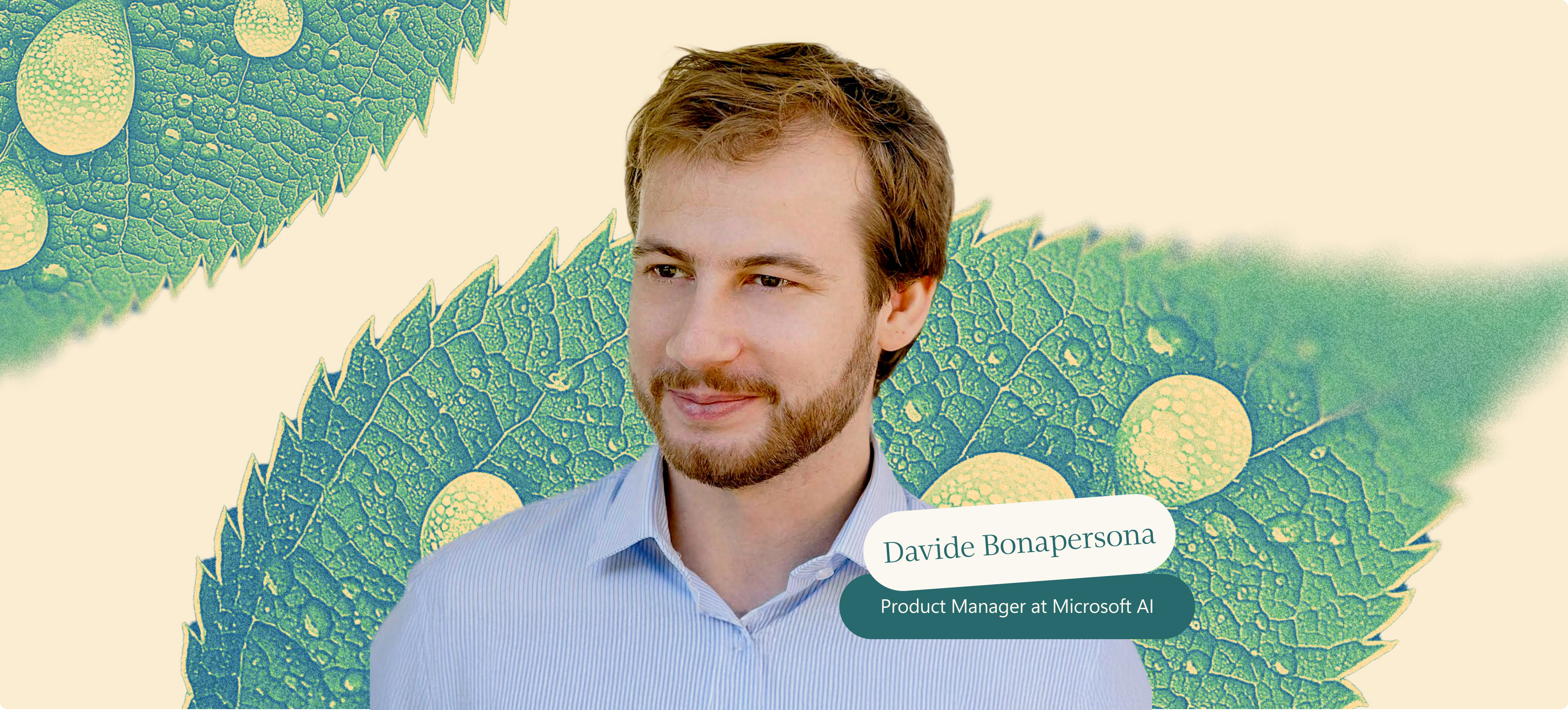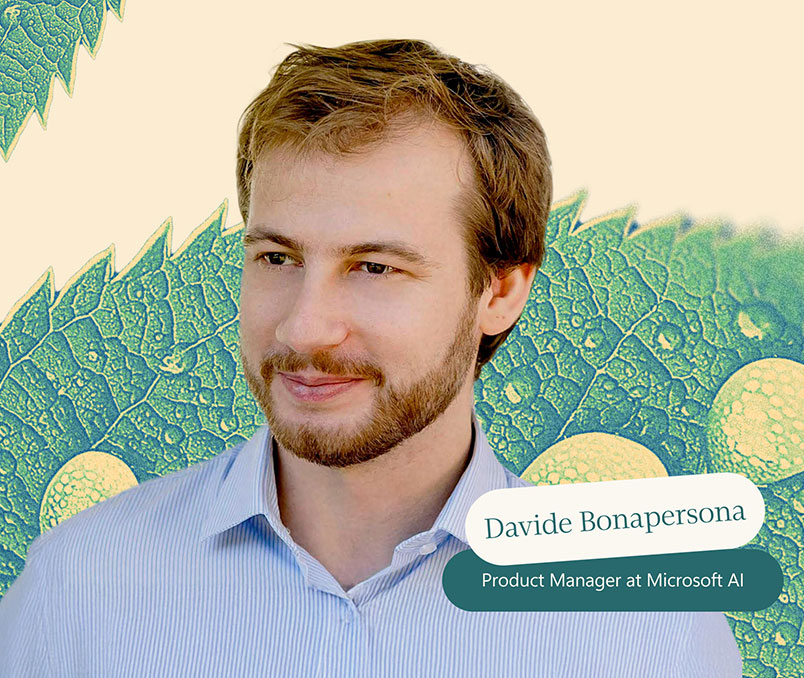
Ella Steckler thought she knew where studying speech pathology would take her, but she never expected to find herself at the forefront of AI innovation. Part linguist and part problem-solver, she connects trailblazing technology to the people it’s made for. Ella now leads prompting and evaluation work on Copilot as a Product Manager, leveraging her expertise as a linguist to analyze and iterate on Copilot’s responses, and engineer it to be the best chat experience for users.
How would you describe your job and what you do?
I’m a Product Manager and my focus is making Copilot sound like a true companion. Whether you’re planning a trip, rewriting an awkward message, or trying to understand a new complex idea, I’m working to make sure Copilot responds in a way that resonates with users.
Being a Product Manager for AI is a little atypical. The “product” is a language model, which functions more like a student you need to teach, rather than software that can be hard-coded.
I act as a researcher, a writer, a teacher, and a guide all at once. I look for the moments when Copilot gets it wrong, and imagine what “right” should sound like. Then I steer the system toward better responses through prompt engineering.
I collaborate with engineers, designers, writers, and researchers to shape the model’s tone and behavior. I also design ways to measure whether our changes are truly improving the product, without introducing unintended side effects.
It’s a fascinating mix of language and logic. I love the challenge of shaping complex technology feel a little more human.
I was fascinated by the challenge of making machines understand everyday speech. We’d solve problems like turning “Brr, it’s cold” into a command to raise the heat, or teaching the system that “Play Black” means the artist “6lack.”
Ella Steckler, Product Manager at Microsoft AI
How did you first become interested in generative AI and machine learning? What motivated you to pursue it as a career?
I studied linguistics thinking I’d go into speech pathology or research, but a professor encouraged me to apply for a summer internship at SoundHound AI. I wasn’t technical, just someone who loved language and was curious about how people actually use it. I got the role and ended up working on voice assistants for cars.
I was fascinated by the challenge of making machines understand everyday speech. We’d solve problems like turning “Brr, it’s cold” into a command to raise the heat, or teaching the system that “Play Black” means the artist “6lack.” I also worked on improving recognition across accents and speaking styles. This work showed me first-hand just how powerful a language background could be in tech.
When I first experimented with generative AI, my mind was blown— the models I worked on at SoundHound struggled with basic fluency like grammar and pronunciation, but these new models totally spoke like humans. That led me to a role at the startup Inflection AI, where I worked on Pi, an empathetic AI companion. There, the problems we were sought to solve were focused on engineering responses to be engaging, empathetic, and complete. To solve these problems, I expanded my focus from linguistics and I got hands-on with prompt design and model finetuning. I’ve been working in this space ever since.
What educational background or training do you have that has helped shape your skills?
I studied Speech, Language, and Hearing Sciences (SLHS) as well as Linguistics with a certification in Teaching English as a Second Language (TESOL). Additionally, I’ve worked as a Linguistic Annotator, Project Manager, and AI Language Specialist at SoundHound and Inflection AI.
What are you currently working on?
So many response quality improvements! Factuality, organization and formatting of responses, and personality, to name a few.
Take initiative. Especially when it’s uncomfortable! Volunteer to lead projects, document your processes, and present your work. Making your work visible positions you as the go-to person for specific expertise or projects.
Ella Steckler, Product Manager at Microsoft AI
Can you give an overview of your role as a PM on the AI team and how it fits into the work of Microsoft AI?
I review a lot of user feedback to inform updates to Copilot’s response style. I help make model updates and evaluate how well they’re working by writing prompts or collecting examples of high-quality human and AI conversations. I also design and execute conversation data collections by writing instructions for human labelers on what makes a response good.
What role do user feedback and usability play in your process? How do you incorporate feedback to improve your work?
I’m constantly reviewing user reactions and feedback from interactions with Copilot and apply it to Copilot’s response style. Whether that’s uncovering new use cases we hadn’t considered or inspiring more examples in prompts and labeling instructions.
As AI adaptation grows rapidly, what changes do you anticipate within the industry?
There have already been significant changes in my work since the rise of this latest wave of AI, and Large Language Models in particular: we’ve never been able to understand content at scale as well before. Now, the rate of model improvements seems ever-increasing. Where people might use Copilot and other AI systems to assist with parts of their workflows today, they might automate them fully or with supervision only at crucial steps.
As a PM, what excites you about the integration of AI?
I’m excited about AI helping both refine and scale the capacity for language work in my role. Prompt iteration and evaluation is a huge task, and I’m already using AI to review and edit prompts, brainstorm conversation scenarios, or build formulas to sift through conversation data.
How do you stay updated on current tech trends and emerging practice?
I go to podcasts and news outlets to stay up to date with technology developments and current events. Our team is also very open to knowledge sharing and learning opportunities, with regular workshops on product management, prompting, and data collection.
Looking back at your journey, what advice would you give to aspiring Product Managers who are just starting out on their path?
Take initiative. Especially when it’s uncomfortable! Volunteer to lead projects, document your processes, and present your work. Making your work visible positions you as the go-to person for specific expertise or projects. This can lead to more interesting and challenging opportunities.
What’s a fun little-known fact about you?
During 2020 I worked as a veterinary assistant! I thought I’d be the receptionist but ended up getting an impromptu veterinary education instead. Thanks to COVID keeping pet parents outside, I learned everything from dog dental hygiene and giving vaccines to assisting with surgeries– all while having absolutely no medical background. Best accidental internship ever!


Davide’s goal? To bring Copilot to everyone. He’s passionate about making it accessible, enjoyable, and trustworthy. His AI journey began with a startup, and he’s since worked at Meta and Inflection AI. Now at Microsoft, he leads Copilot’s growth, creating a seamless experience across the Microsoft ecosystem. He’s sharing his insights on AI’s future and advice for aspiring product managers.
How would you describe your job and what you do?
I am in charge of Product Management across Copilot, currently focused on Growth. I believe Copilot can have a strong positive impact on people’s lives and my work helps make sure everyone can interact with Copilot on any device, have a great experience and build a trusted relationship.
How did you first become interested in generative AI and machine learning and what motivated you to pursue it as a career?
When I was 22 I founded a startup that used NLP to help people express themselves on messaging apps. I then worked at Meta on Messenger, Instagram DM, WhatsApp, and built a platform for developers to create messaging assistants.
When I met Mustafa, Inflection AI only had 7 people, yet I was captivated by what the team were building. Six months before the ChatGPT launch, when few people talked about AI and LLMs, I instantly knew that our technology would redefine how people interact with computers. I immediately decided to join as the first consumer PM.
What educational background or training do you have that has helped shape your skills?
I have a masters in Computer Science from Oxford and one in engineering from Telecom Paris.
I worked for 12 years in product and engineering leadership roles, first as cofounder of my own startup, then at Meta, Inflection AI and Microsoft.
“I believe Copilot can have a strong positive impact on people’s lives and my work helps make sure everyone can interact with Copilot on any device, have a great experience and build a trusted relationship.”
Davide Bonapersona, Product Manager at Microsoft AI
What are you currently working on?
I am working on integrating Copilot across Microsoft’s ecosystem of products to provide a cohesive, full-featured experience to consumers who use our products.
Can you share an overview of your role as a Product Manager and how it specifically relates to Microsoft AI?
Product Management is about understanding user needs, technology capabilities, and market dynamics; identifying the most important problems we can solve for people; and support cross-functional teams of designers, engineers, researchers and marketers to launch products that people love.
What role do user feedback and usability play in your process? How do you incorporate feedback to improve your work?
User feedback and usability is at the core of my work. Everyone in the product management team works really hard to understand user needs, and build a product that earns user trust. For that, we continuously run user research and usability studies, read user feedback every day, and obsessively use the products. My friends and family are probably getting tired of me asking them to try the latest features!
“Don’t be afraid to take risks.”
Davide Bonapersona, Product Manager at Microsoft AI
With the introduction of AI, what changes or shifts do you anticipate within the industry?
So much of our personal and professional growth is tied to the information, advice and knowledge we have access to. Growing up I was lucky to have a PC at home and access to online forums and tutorials where I learned how to code. Later in life I was lucky to have great teachers, mentors, supporters and friends.
Now everyone has internet access, and yet information, advice and knowledge aren’t equally distributed and available. AI enables everyone to communicate with humanity’s greatest experts as naturally as we would chat with a friend, and benefit from personalized guidance, mentorship and help. I think it’s an incredible opportunity for everyone to learn and better understand the world and each other.
How do you stay updated on current tech trends and emerging practice?
I read a lot of industry articles, and over the years I built a great network of people in many areas of technology that helps me stay up to speed. I also continue programming in my spare time and playing with the latest models and techniques.
Looking back at your journey, what advice would you give to aspiring Product Managers who are just starting out on their own path? Join a startup, or if you have the possibility, start your own. It is by far the most formative and fulfilling environment for product managers, as you’ll have to learn to prioritize, wear many hats, collaborate with people from all professions and backgrounds, and quickly see the direct impact of your work. You learn more in 1 year of a early-stage startup than 2-5 years at mature companies. Don’t be afraid to take risks, and fail early and often.







